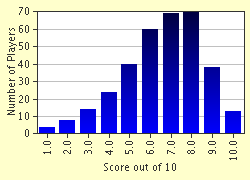Quiz Answer Key and Fun Facts
1. You read that Elene Cornaro-Piscopia was awarded an MA and a doctorate by the University of Padua (Italian - Padova) in 1678, making her the first woman to be awarded a degree anywhere in the world. Your initial reaction is disbelief: the date strikes you as at least 150 years too early, and Padua seems an unlikely place for such an innovation. However, the claim has aroused your curiosity. If you want to have a to check on the claim, what is the best way to set about it?
2. One source states that the then Kingdom of Armenia converted to Christianity in 301, another give the date as 313 and yet another as "262-270 or 310-313". You feel helpless in view of the bewildering discrepancies. What is your best next step in this case?
3. You read that "British appeasement of Germany dates from Lloyd George's premiership 1921". You have always associated appeasement with Neville Chamberlain and Munich or perhaps also with Stanley Baldwin. You are surprised. What is the most important next step?
4. You want to find out the overall number of Soviet war dead (military and civilian combined) in WWII. You find figures ranging from 10 milllion to 27 million. Which course of action makes best sense?
5. You read in an article on economics that "Lenin approved of Keynes". The article is dogmatically opposed to any kind of government intervention in the economy, so you decide to check this claim. Which of the following would disprove the statement?
6. Some kinds of areas of history are more prone to factual inaccuracy than others. In which of these would you need to be most aware of the possibility of factual inaccuracies, such as wrong dates, names and places, in secondary literature?
7. You find a copy of the "Cinq Codes" (1816) - that is, the collected version of the five Napoleonic Codes. The book begins by stating (in English translation), "The laws are enforceable throughout French territory ..." This strikes you as so obvious that it doesn't seem worth saying. What is the most likely reason for its inclusion?
8. You read that in England, between about 1680 and the late 1840s, husbands sometimes sold their wives openly and publicly in a market-place on a busy market day. You are thunderstruck. What's the best next step if you want to make sense of this?
9. You read that ever since the start of the Hundred Years' War in 1337 "England and France have been hereditary enemies". Why should you treat this statement with the utmost skepticism?
10. In practice, do you need some prior knowledge of history in order to undertake effective historical research?
Source: Author
bloomsby
This quiz was reviewed by FunTrivia editor
Beatka before going online.
Any errors found in FunTrivia content are routinely corrected through our feedback system.

